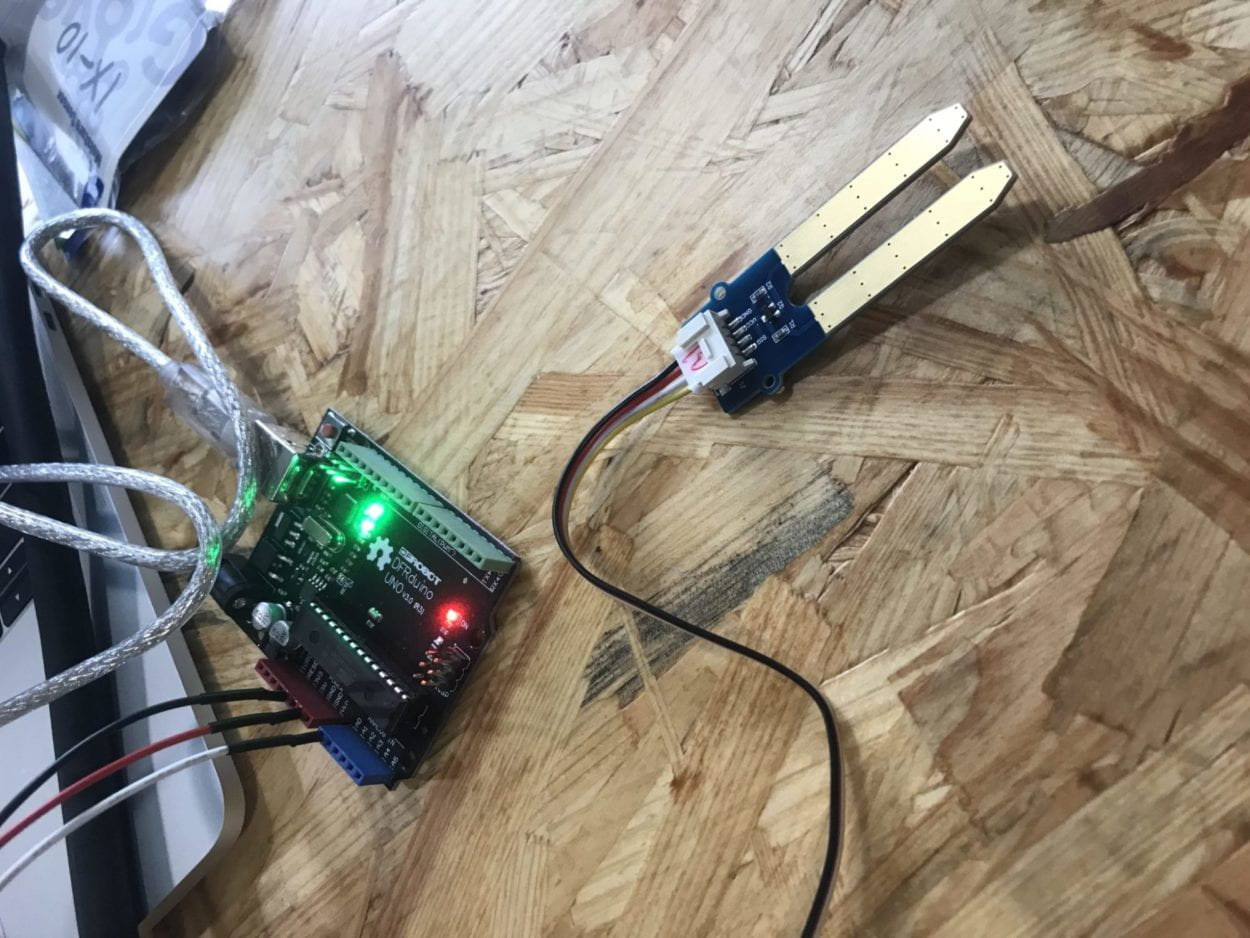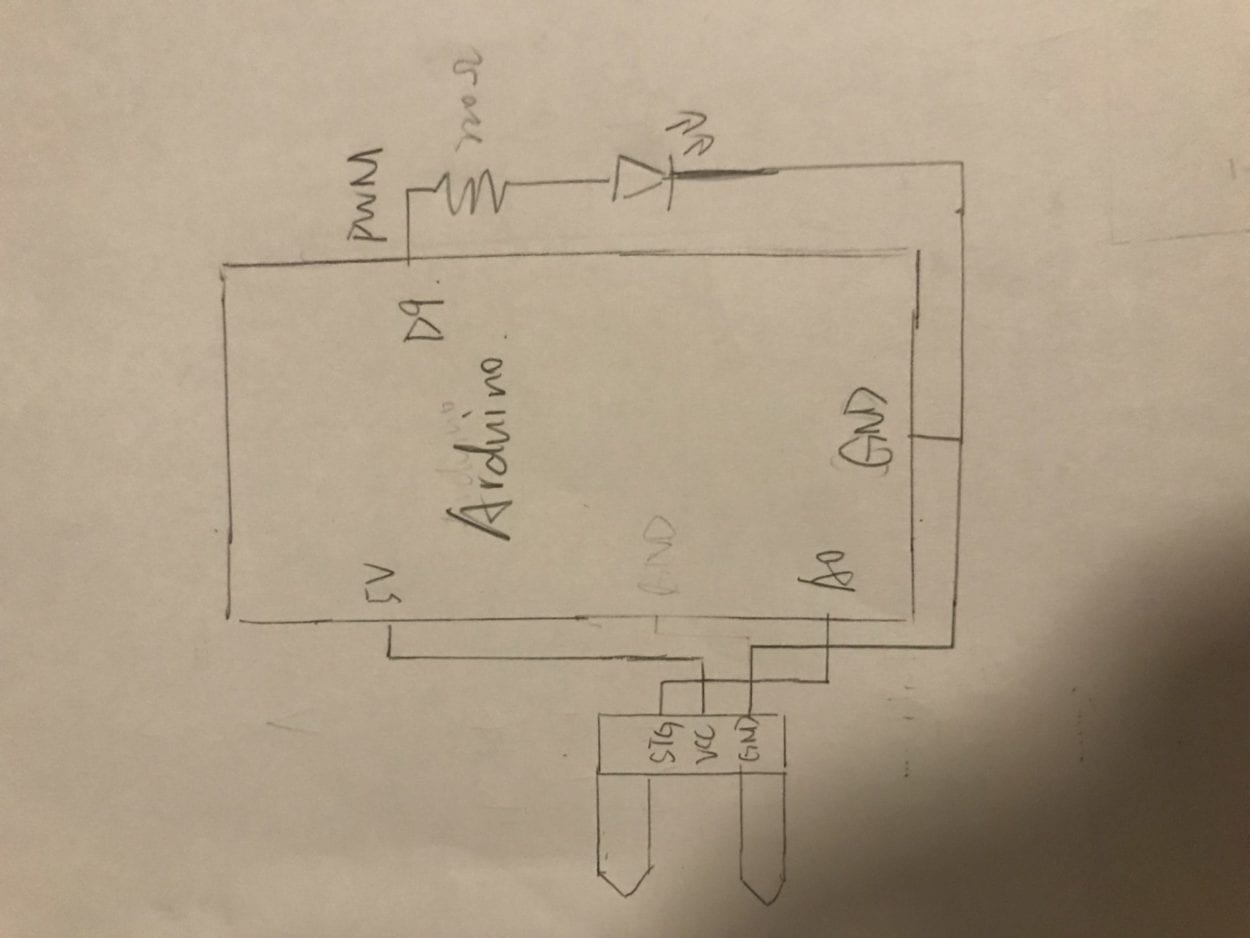During this recitation, we focus on the use of sensors. My partner Fay and I decide to work on the moisture sensor. This time we have to write the codes by ourselves, which is what I find challenging during this section. But luckily we successfully write the right code at last through our efforts.
Moisture Sensor:
It takes me a long time to understand what the “(sensorValue, 0, 1023, 0, 255)”means. After listening to my partner’s detailed explanation, I understand that it means “(sensorValue, fromLow, fromHigh, toLow, toHigh)”, we have to do this because the component have limits on the sensorValue, so we have to map the value into another range.
When I put my hand on the moisture sensor, it shows the moisture value on the screen by the serial monitor. We write a code that when the value is over 100, the led light will turn light. Luckily, it successfully works.
Diagram
It is important to connect the right pins on the moisture sensor.
Question 1:
What did you intend to assemble in the recitation exercise? If your sensor/actuator combination were to be used for pragmatic purposes, who would use it, why would they use it, and how could it be used?
A: I intend to assemble the moisture sensor. I think this circuit can be applied into agriculture for farmers. The sensor can detect the moisture level in the dirt. Once the moisture level is higher or lower than the plants’ preference temperature, it can send messages to the farmers to remind him of adjustment, which makes the farming more effective and helps farmers get more harvest.
Question 2:
Code is often compared to following a recipe or tutorial. Why do you think that is?
Because every component in the circuit will work just precisely as what is written in the code. The code here act as an instruction and an order, which is similar to what recipe functions in the process of cooking. What’s more, code differs. Good code makes the circuit work effectively, just like a good recipe makes the food more tasty. However, bad code can make a circuit much more complicated or even lead to failure, and similarly a bad recipe makes dishes bad.
Question 3:
In Language of New Media, Manovich describes the influence of computers on new media. In what ways do you believe the computer influences our human behaviors?
Computers are greatly changing our ways of living and thinking. Most of us are sticking to their phones (a tiny version of computer) and we think we cannot live without it. However, people actually live very well independent of phones ten years ago. We become more used to text talking instead of real-life face-to-face conversations. What’s more, we tend to think less because Google or Baidu can help us solve almost every problem.

